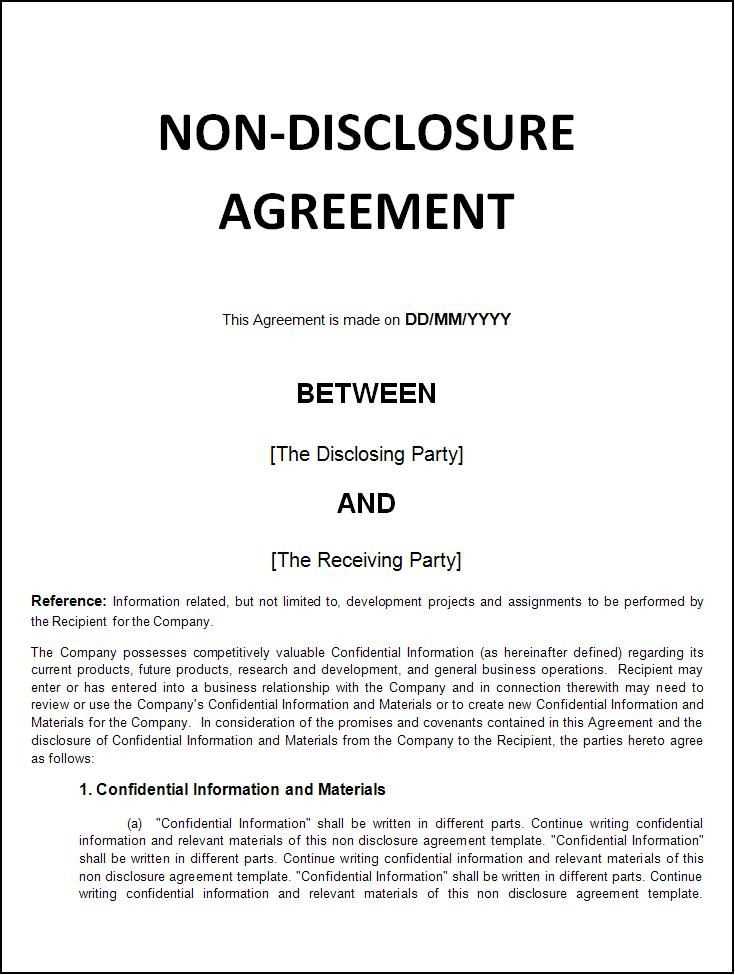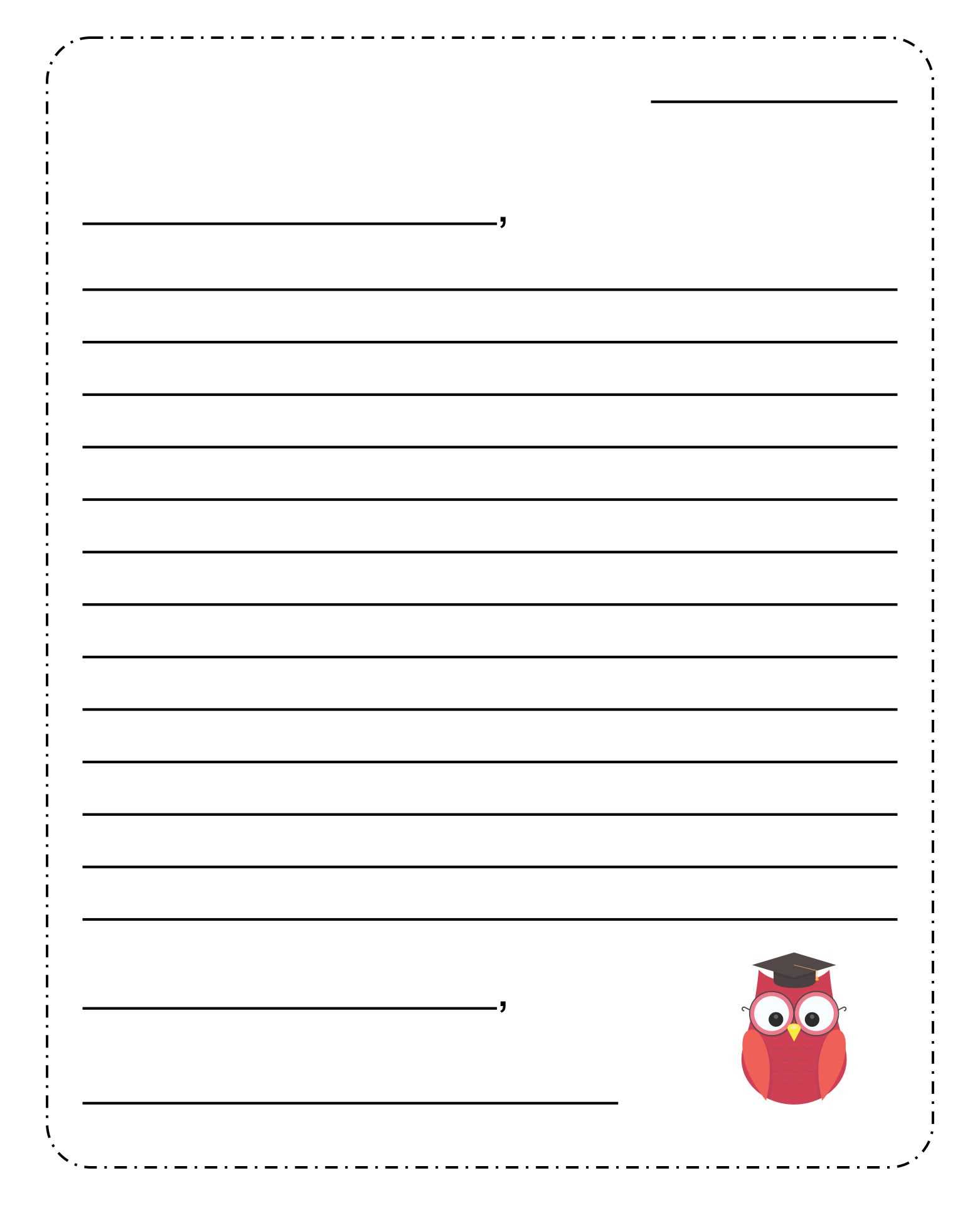Complete NDA Letter Template for Your Business Needs

In professional settings, protecting sensitive information is crucial. A well-crafted document that ensures both parties understand their obligations in safeguarding private details can be essential in many business transactions. This guide will walk you through the key elements of such a document, its purpose, and how to tailor it to your specific needs.
Why You Should Use a Confidentiality Agreement

When two or more parties are involved in sharing sensitive data, having a legally binding agreement is vital. This ensures that all parties are committed to maintaining confidentiality and not disclosing any privileged information without proper authorization.
Key Benefits of a Confidentiality Agreement
- Protecting sensitive information: Guarantees that private details, whether financial, business strategies, or intellectual property, are not exposed to unauthorized individuals.
- Building trust: Ensures that all involved parties feel confident in sharing critical data without fear of misuse.
- Legal safeguard: Provides a legal framework in case of breaches, offering recourse for any party whose information is improperly shared.
Customizing the Document to Suit Your Needs

To create an effective confidentiality agreement, you must tailor it to reflect the unique nature of your transaction or partnership. This involves specifying the terms clearly and including any clauses that address particular concerns or requirements.
Important Sections to Include
- Parties involved: Clearly define who is entering the agreement.
- Confidential information: Specify what qualifies as confidential, ensuring there is no ambiguity.
- Duration: Determine how long the confidentiality will remain in effect.
- Consequences of breach: Establish penalties or remedies if the agreement is violated.
Making the Agreement Legally Binding

Once the details are defined, ensure the document is signed and dated by all parties involved. Having the agreement witnessed or notarized can also provide extra security, ensuring that it is enforceable in court if necessary.
Legal Considerations
While this type of agreement is important, it’s also essential to be aware of the legal landscape surrounding confidentiality agreements. Each jurisdiction may have specific rules or regulations that govern how these contracts are executed and enforced.
Always consult with a legal professional to ensure your document adheres to relevant laws and standards, and that it effectively addresses any potential issues that could arise during its term.
Understanding Confidentiality Agreements and Their Importance

Confidentiality agreements play a vital role in securing sensitive information between parties. They serve as a foundation for mutual trust, outlining how private details should be handled and protected from unauthorized disclosure. These documents are crucial in various business environments, ensuring that both parties are legally bound to maintain privacy and prevent the leakage of confidential data.
Using a confidentiality agreement is necessary for businesses that deal with proprietary information or collaborate with external partners. By having a clear and enforceable contract, you protect your intellectual property, trade secrets, and other critical information that could affect your company’s competitive edge or reputation.
The main elements of such an agreement include the parties involved, a description of the confidential information, the duration of the confidentiality obligations, and the penalties for any breaches. These components ensure that both parties understand their roles and the seriousness of maintaining secrecy throughout their relationship.
Customizing this type of contract is essential to meet the specific needs of the agreement. Depending on the nature of the shared information and the business relationship, the clauses and conditions should be adjusted accordingly. This ensures that the agreement is both relevant and effective in protecting the information in question.
To implement this agreement effectively, it’s important to clearly outline the steps each party must take to safeguard the information. This includes setting clear protocols for handling, storing, and sharing confidential data. Furthermore, ensuring that the document is signed by all involved parties is necessary to make it legally binding.
There are also significant legal factors to consider when drafting or signing a confidentiality agreement. It’s essential to understand the legal implications of the document, including the jurisdiction under which the contract will be enforced, as well as any potential legal remedies in the case of a breach. Consulting with a legal professional is recommended to ensure that the agreement complies with relevant laws and provides adequate protection.